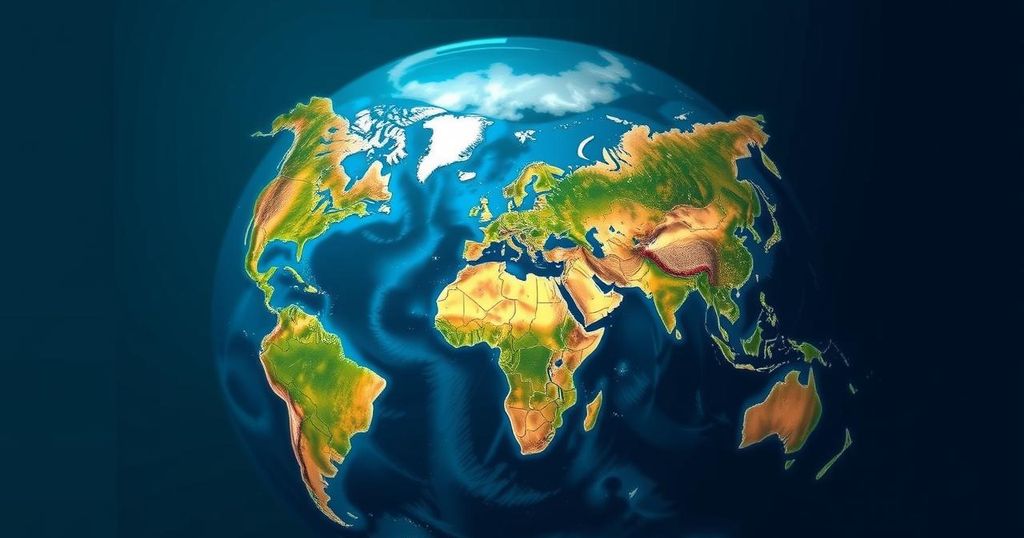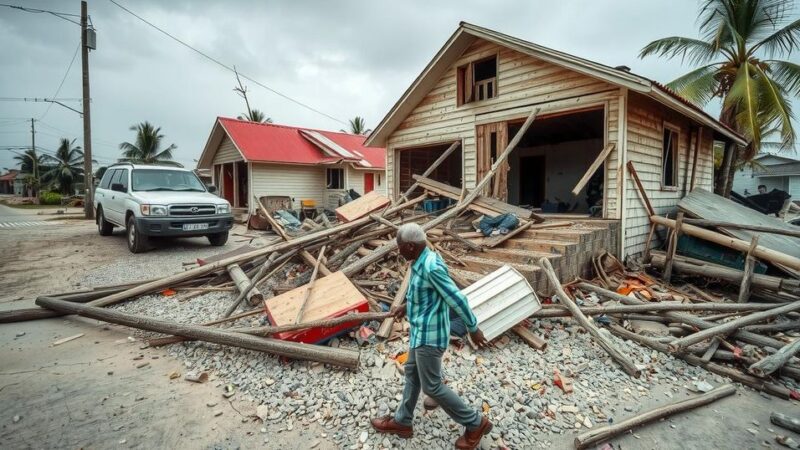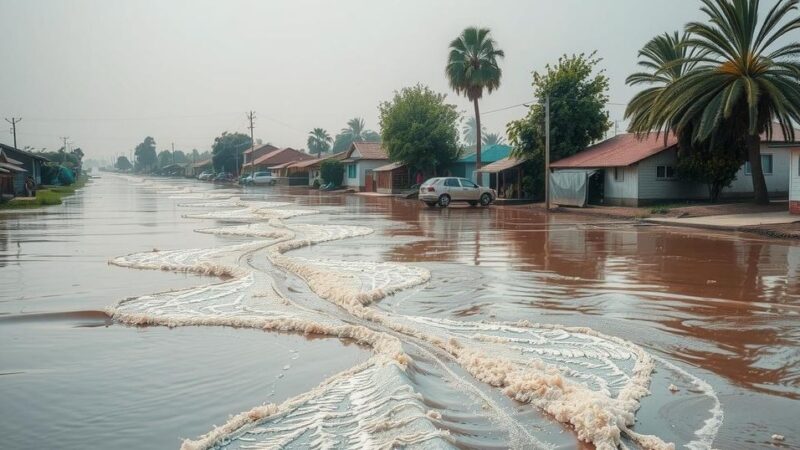The International Court of Justice is currently hearing a significant case regarding national responsibilities in relation to climate change. Nearly 100 countries, led by Vanuatu, are involved in this landmark discussion to clarify what obligations nations hold under international law, both to mitigate climate change and to address damages. Although the court’s ruling will not be legally binding, it may greatly influence global climate litigation.
The International Court of Justice (ICJ) has commenced hearings on a landmark case that addresses the legal responsibilities of nations regarding climate change. This significant event involves testimony from almost 100 countries, initiated by the initiative of Vanuatu, a Pacific island nation severely affected by climate impacts. The court’s deliberations will focus on critical questions about the obligations of states to mitigate climate change and the reparations owed for environmental damages caused by global warming. Although the court’s rulings are not legally binding, their influence may strengthen climate change litigation worldwide.
The concept of seeking a legal opinion from the ICJ originated five years ago from law students in Fiji and was subsequently championed by Vanuatu. This island nation has endured devastating effects from severe weather events linked to climate change, including last year’s cyclones that impacted 80% of its population, leading to a state of emergency declaration. Under the influence of Vanuatu and other concerned nations, the UN General Assembly has posed vital questions to the ICJ regarding international legal obligations to safeguard the climate and the consequences of states causing significant harm to the environment.
The hearings, taking place in The Hague, will feature Vanuatu presenting its arguments first. Ralph Regenvanu, Vanuatu’s special envoy, communicated the urgency of the matter, stating that the request for an advisory opinion from the court represents a crucial moment in defining international legal mandates for climate actions. The outcome may subsequently be utilized by smaller nations pursuing financial compensation for the damage caused by historically high emissions from developed countries.
The court proceedings follow the recent COP29 climate summit, where proposed financial support of $300 billion annually by the wealthy nations for climate assistance by 2035 was met with disappointment from developing countries, who deemed it inadequate. The hearings will continue until December 13, with a final opinion anticipated in 2025.
The case under consideration by the ICJ marks a pivotal point in international climate law as it seeks to clarify the responsibilities of nations in combatting climate change. With the majority of affected nations being small island states, this case highlights the necessity of establishing legal precedents that can influence future climate litigation. Vanuatu’s leadership, spurred by its own devastating experiences with climate impacts, exemplifies how legal frameworks can address environmental injustices. The ICJ’s involvement could be a catalyst for stronger climate initiatives and accountability by larger polluting nations. This initiative aligns with broader international strategies to address climate challenges, particularly as highlighted in recent climate summits where financial discrepancies between developed and developing nations have sparked controversy. By potentially establishing legal obligations for climate action, the ICJ could empower vulnerable nations in their quests for justice and reparations for climate-related damages.
In conclusion, the ongoing hearings at the International Court of Justice represent a crucial development in the realm of international climate law, as countries grapple with their environmental responsibilities. With nearly 100 nations participating, the case not only emphasizes the urgent need to address climate change impacts but also underlines the potential for legal avenues to hold nations accountable for their contributions to global warming. The anticipated advisory opinion could significantly shape future climate litigation, empowering small nations in their efforts for reparations and justice.
Original Source: www.bbc.com







